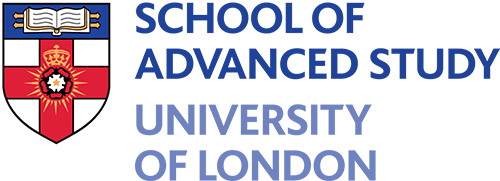Partners
HEI partners
The consortium is led by The University of Manchester, in partnership with the University of Durham and the Institute for Modern Languages Research, at the School of Advanced Study, University of London. In addition, we draw on concentrations of excellence at 9 other UK HEIs. The list of satellite projects supported by flexible funding is as follows:
Transnational Performing Arts in Post-Soviet Russophone Space
Professor Julie Curtis, Professor Philip Bullock (University of Oxford) and Noah Birksted-Breen (Sputnik Theatre) investigate the contemporary performance arts (especially theatre, ballet and opera) in Russian-speaking space during the first two decades of the 21st century. They will focus in particular on representations of homosexuality and gender identity issues in Russia, Ukraine and Belarus. Sputnik Theatre will select one contemporary work for translation and presentation in Oxford as a staged reading.
Find out more
‘Global Russians’: Transnational Russophone Networks in the UK
Professor Lara Ryazanova-Clarke (University of Edinburgh) explores the construction, articulation and commodification of ‘global Russian’ identities and their place in the social and cultural life in the UK. Includes work with diaspora Russian communities and organizations in London
Find out more
Can the Digital Subaltern Speak?: Remapping World Cinemas in the Digital Age
Professor Paul Cooke (University of Leeds) explores the way in which the production, distribution and consumption of audio‐visual texts in the digital age impacts on the expression of ‘subaltern’ cultural identities. The project involves collaboration with the British Council in Lebanon: young people are given tools to make films about their relationship to language and politics in a conflict zone
Find out more
Bi-Lingual School Opera Project
Professor Julian Philips (Guildhall School of Music and Drama) will compose a new opera allowing Opera-in-Education and Modern Languages to synergise, offering young people an immersive experience in both opera making, and language learning. It will entail collaboration between a reputable opera company and one or more secondary schools
Bi-lingualism and Creative Writing
Professor Julian Preece (University of Swansea) leads a project investigating how knowledge of a second language informs the self-identity and creative practice of a number of prominent authors who publish fiction in English. It will explore how writers with knowledge of two languages function as cultural intermediaries between language communities and how this knowledge affects their reception and success
Find out more
Language and Open-ness in Literature
Professor Galin Tihanov (Queen Mary University, London) leads a project on language, foreignness and openness as conceived in Modern Languages, Comparative Literature and World Literature. It includes a case-study of the evolving ideas of ‘world literature’ in the multilingual and multicultural context of the Soviet Union.
Multilingualism and Language Learning in Higher Education
Professor Anne Pauwels (SOAS) is carrying out an online survey, interviews and focus groups targeting students studying languages in a variety of international contexts. It will produce the first comparative analysis of attitudes to, and motivations for, language learning in HE across Europe and beyond, establishing typical profiles for students of language-related degrees. It will inform recruitment strategies and curriculum design in the UK and abroad.
Integrating Transmedia Tools in Language Education at HE and Secondary Levels
Dr Carmen Herrero, Dr Isabelle Vanderschelden and Dr Daniel Ecandell (Manchester Metropolitan University) are researching how transmedia tools, including film and computer gaming, can be integrated into language teaching curricula. In addition to developing innovative methods and delivering training sessions, they will generate a set of non-verbal , narrative teaching materials for use in the languages classroom
Find out more
Literary Translation Workshops: Bridging Communities
Dr Cecilia Rossi (UEA) will lead a team exploring the potential of literary translation workshops to create a space in which personal and collective narratives are re-imagined and passed on. She will be involving non-academic partners from across the world, including prominent writers and poets, translation organisations in Argentina and Korea, and the Argentine Ministry of Culture.
A Multilingual Reading Scheme for the City of Sheffield
Dr Sabine Little (University of Sheffield) is exploring how a multilingual children’s library with an integrated reading scheme can aid multilingual families in supporting children’s language skills and identity formation. Her work centres on a collaboration between the University of Sheffield, Sheffield’s 14 heritage language schools, Sheffield Libraries, and the wider multilingual Sheffield community. It will incorporate a formal launch (17th November 2018, attended by Lord David Blunkett and Sheffield’s Lord Mayor Magid Magid), and a celebration on 3rd March, co-organised by Sheffield’s Heritage Language Schools.
Find out more
Non-standard and minority varieties as community languages in the UK
Dr Petros Karatsareas (University of Westminster) leads a project which aims to aims to uncover what lies underneath the surface of the UK’s remarkably diverse linguistic mosaic, and the implications that the minoritisation of non-standard varieties of particular community languages have for identity and policy. Revolving around two symposia which bring academics and stakeholders into dialogue, the project’s ultimate goal is to design a new strategy for the maintenance of the UK’s community languages.
Find out more
Young People and the Semiotic Landscapes of Community and Educational Space
Dr Jessica Bradley is employing innovative co-produced methodologies to allow young people to explore urban multilingualism in Leeds through arts-informed practice, to include photography, visual collage and the LinguaSnapp App developed by Multilingual Manchester. In this way, they will develop their own critical reading and analysis of the visual and linguistic landscapes of the communities in which they live and study.
Collaborating international HEIs
- Bogazici University (Istanbul)
- Fudan University (Shanghai)
- The Hebrew University (Jerusalem)
- Higher School of Economics (Moscow)
- Humboldt University (Berlin)
- University of Maribor (Slovenia)
- National University of the South (Bahia Blanca, Argentina)
- Oslo University
- Qatar University
- University of Salamanca (Spain)
- Southern Federal University (Rostov-on-Don)
- University of Trieste
Non-HEI partners
Collaborations with project partners and stakeholders will contribute to long-term improvements in community relations and intercultural understanding, and raise public consciousness about language’s potential within the creative and performing arts. We will link stakeholders to relevant strands: city councils to multilingualism; foreign policy think tanks and cultural diplomacy institutions to transnationalism; translation networks and media, arts and cultural organizations to translingualism. Our partners are:
- Tyneside Cinema
- Global Voices
- South Sefton 6th Form College
- Durham County Council
- EngageMedia.Org
- Ahmed Iqbal Ullah Education Trust
- Royal Opera House
- Argentine Association of Translators and Interpreters
- Chatham House
- Southwark Council



